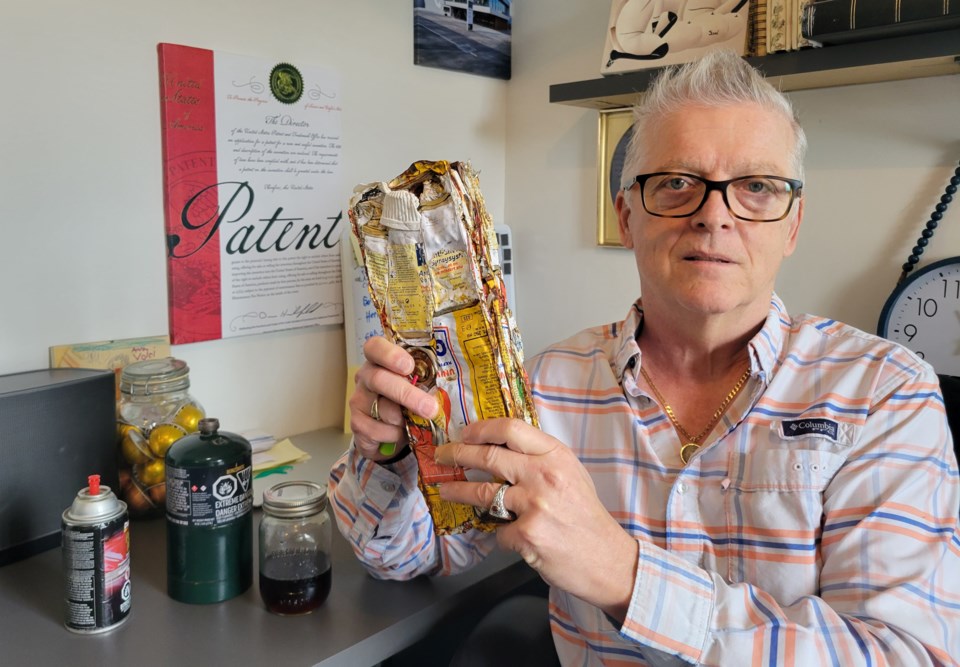FERGUS – On the heels of being awarded an international recycling award, a Fergus resident is ready to make the town a leader in aerosol recycling.
It may seem like an odd place to do it but Mike MacKay figured, why not Fergus?
MacKay is the co-founder and owner of Despray Environmental which has developed technology for complete recycling of aerosol cans. For this, MacKay and Despray Environmental was given a Recycling Heroes 2024 award, along with nine others, from the Global Recycling Foundation.
In an interview at his home office in Fergus, MacKay explained this technology is the first of its kind in the world and he’s been working on it since 1999.
There’s three different waste streams involved with aerosol cans: gas propellant, liquid waste and metal.
MacKay said while most people think the can is empty when they’re done, on average there’s about 25 per cent of the gas and liquid left.
“Almost none of that gets recycled,” MacKay said. “That’s because of the explosive atmosphere and hazardous waste.”
The environmental cost is staggering based on MacKay’s figures of one billion litres per year going into the landfills and atmosphere from 16 billion cans worldwide.
“If they have even a 20 per cent fill rate, that’s equivalent of a deep sea Horizon oil spill continuously,” he said. “The Horizon oil spill ended after eight months. For aerosols it’s continuously at the same rate.”
The machine Despray builds takes aerosol cans in bulk and puts them in a non-oxygen atmosphere in a closed container. Nitrogen is then introduced, making it non-explosive.
“Once that non-explosive environment is available it crushes like a normal crusher,” MacKay said. “You create solid bricks of metal, the liquids are internally captured and the gas is captured and recompressed back to liquid fuel.”
The liquids get used for waste energy in the cement industry and the metal can now be recycled.
Over the years, MacKay said this technology has been perfected and they’re now international in Canada, USA, Spain, Germany, UK and France with “big waste management companies” coming on board.
It’s not enough to catch up.
“We can’t recycle 16 billion cans a year, our machines do maybe 3 million a year each,” MacKay said. “So we’re trying to partner with bigger people than us.”
The machines aren’t cheap, ranging from $500,000 up to $3 million, but MacKay said those with them can make the money back relatively quickly by charging user fees for recycling. He understands this might put people off from recycling but feels it's fair.
“You have to pay money for recycling should be the way of thinking, if you’re going to use aerosols you should have to pay for it,” MacKay said, later adding he feels it should fall on the producers of aerosol cans to pay for the recycling.
MacKay is working on creating the World Aerosol Recycling Association from his Fergus office and will soon be looking for partners such as a local municipality like Centre Wellington. He feels the tide is turning towards taking serious action on climate change and environmental damage.
“This is a big movement…it’s happening in Fergus, this is going to be a worldwide movement,” MacKay said.



